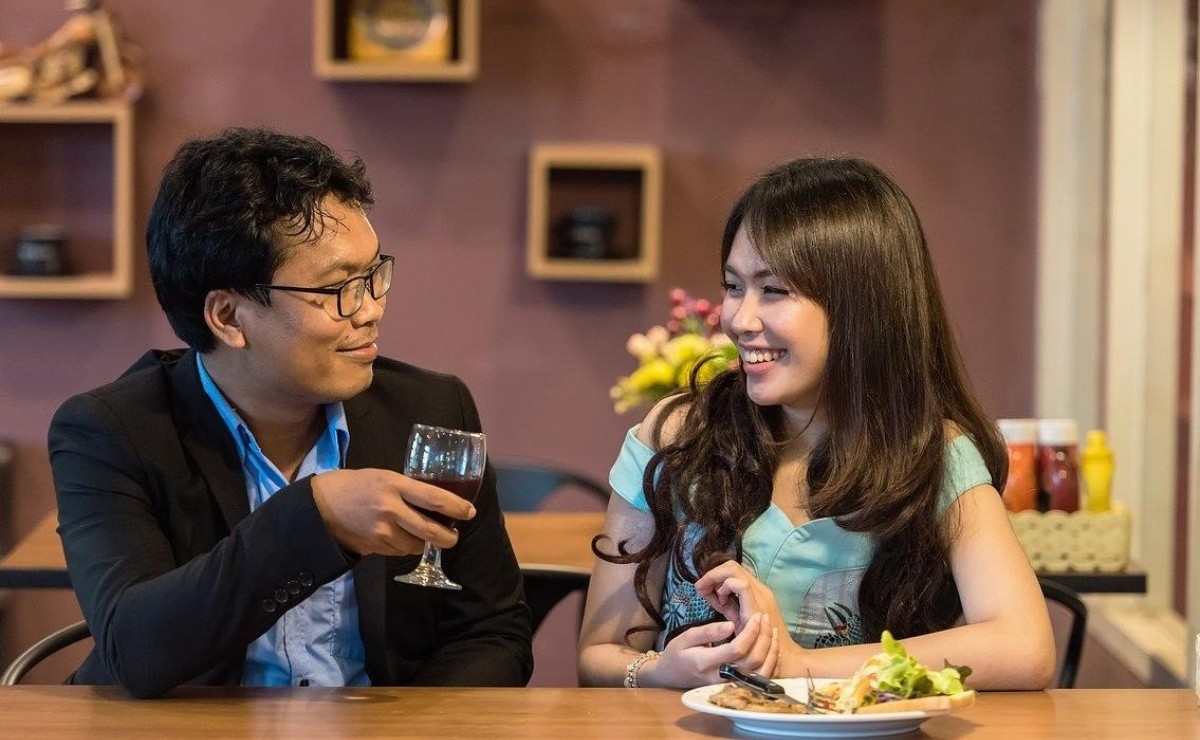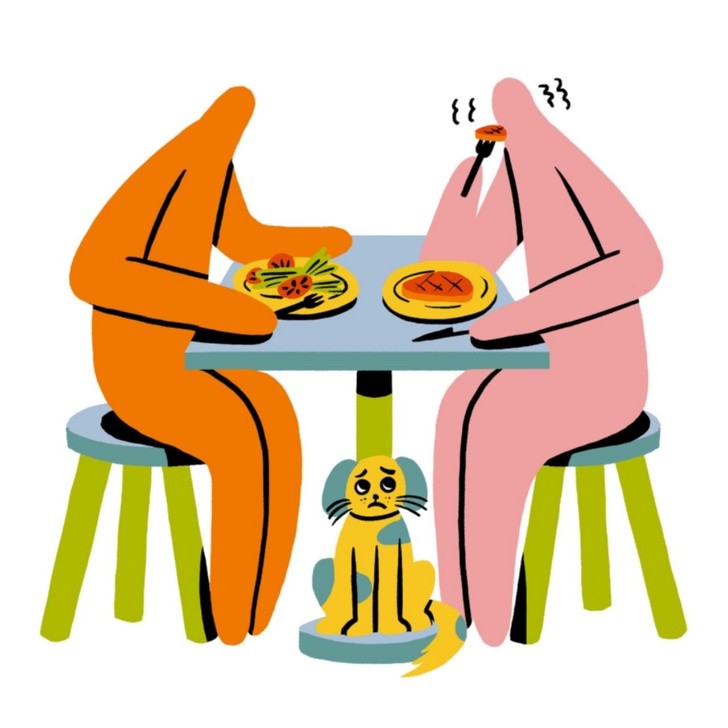
Breakfast, lunch or dinner can become the cause of separation for some couples, although it seems impossible
Since lockdown for the global pandemic began, Marianne Andrews, Jonathan Miller, and their two teenage sons have been eating dinner together every night , occasionally having lunch together as well.
The situation has been a bit … tense . Andrews is honest about her distress: Jonathan’s eating habits have in itself bothered me for years and have only been exacerbated during the last six to seven weeks that he has been working from home, ”said Andrews, a 53-year-old homemaker. years living just outside London in Surrey.
Where do I begin? Ah, let’s start with breakfast. Andrews says the problem is that her lover, to whom she has been married for more than two decades, sips her morning coffee. The drink is "too hot to have a drink, so just sip the coffee," he said. "It is not the sound it makes when swallowing, but the sucking sound."
You can see: Happy couples do not share their relationship in networks

Couples who eat together may not stay together
Then there’s the matter of the molar implant that Miller, 55, head of the English Department at an international school in London, has been waiting for. His appointment was canceled due to confinement, so he has been forced to chew his food on only one side, which has horrified his wife.
However, the most egregious transgression, at least in his opinion, is his habit of chewing and crushing nuts after eating.
"We sit down to watch television and he comes in with a bowl of walnuts, or worse, pistachios, from whose shells he sucks the pistachio with a sound similar to a popping," said Andrews. "Despite years of protest on my part, it continues to bother me with it."
The same thing happens when you eat chocolate. "He tries to make a chocolate square last as long as possible," he said. You can hear him "chew slowly." That bothers her.

Food may not appear in the annals of divorce courts on the same level as an affair with a spouse’s best friend, for example, but what your partner eats and how he eats it frequently has a deeper meaning. and it can cause real problems. For some people, food is a matter of power and control. For others it is an expression of love. Still, others see it as a sign of compatibility.
So the question remains: Is it possible to save this union if she likes Almond Joys and he is allergic to nuts? What if she’s on a gluten-free paleo / keto / vegan / pescetarian diet, while he’s Peter Flintstones and salivates over brontosaurus burgers? And what about the distinction between lovers of good food and those who are not, for example, when one of the parties finds deep meaning in the Pacific clams and the pumpkin flower, while the Another is interested in home biology, or "biohacking," and alternates several days of "normal" eating with prolonged fasts?

These problems can be even more serious when you are confined, eating three meals a day together, sometimes for the first time in years.
"Food can bring us together, but it can also be a real source of anxiety between people and the source of conflict," said Abby Langer, a registered dietitian in Toronto who has consulted couples and families. "If one spouse follows a specific diet and the other does not, this can be a cause of conflict … especially during quarantine."
This also does not take into account chewing noise, lip smacking, silverware grinding, and satiety sounds that many people find unbearable; however, in many cases, those who complain do not do so because they are irascible; they are likely to suffer from a condition called misophonia, in which a person experiences negative feelings to specific sounds … like the famous grinding of nails on a blackboard.
This is something Alex Olins struggles with, but not personally, but for her husband. Olins, 49, the director of an employment and citizenship program at a large nonprofit organization in Seattle, frequently receives complaints from her husband related specifically to his chewing.
"I don’t think I chew loudly," he said. "No one has ever made me notice it."
Except for him. Although her husband, John, has never been diagnosed with misophonia , she believes he could suffer from it.
"It seems to me that it justifies or at least explains his irritability and sensitivity to this problem," he said.
Clans that are happy at meal clearly do exist. Some couples or families strengthen their bonds while enjoying bowls of chili and serving ladles with love. Others resolve their differences in another way.
Naomi Cahn, 62, a George Washington University law professor, is a vegetarian. Her husband, Tony Gambino, 64, is "a meatloaf who loves pork." One of his daughters is on a modified Paleolithic diet, the other has learned to master the slow cooker.
Even before COVID-19, the difference in their habits presented a challenge. Until recently, Gambino, a consultant for a nonprofit institution, had a voracious appetite. For him, cooking had a sense of shared closeness.
“Before, I loved being able to cook for other people and for myself,” she said.
However, that has changed now that the family has different schedules. Each member of the family is responsible for their own food. If they are in the same room at the same time, they sit and eat together.
"We can cook and eat separately and nothing happens," Gambino said. "It is liberating."
As for Andrews and Miller, they are both vegetarians, one less factor to worry about. In addition, he is a “talented and intuitive cook” and has developed this hobby since he is at home, but his wife stated that “he demands a lot of compliments and gets upset if someone diplomatically tells him that he prefers a different dish than the one he cooked that night” .
From what couples eat to the way they eat, being together all the time only exacerbates problems around food. (Jocelyn Tsaih / The New York Times).